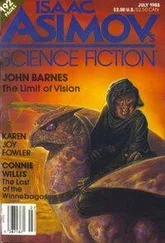My favorite, though, has to be Sliding Doors , in which catching a train—or missing it—takes on cosmic significance.
Just as it should. This is, after all, the Underground.
ALL SEATED ON THE GROUND

I’d always said that if and when the aliens actually landed, it would be a letdown. I mean, after War of the Worlds, Close Encounters , and E.T. , there was no way they could live up to the image in the public’s mind, good or bad.
I’d also said that they would look nothing like the aliens of the movies, and that they would not have come to A) kill us, B) take over our planet and enslave us, C) save us from ourselves à la The Day the Earth Stood Still , or D) have sex with Earthwomen. I mean, I realize it’s hard to find someone nice, but would aliens really come thousands of light-years just to get a date? Plus, it seemed just as likely they’d be attracted to warthogs. Or yucca. Or air-conditioning units.
I’ve also always thought A) and B) were highly unlikely, since imperialist invader types would probably be too busy invading their next-door neighbors and being invaded by other invader types to have time to go after an out-of-the-way place like Earth, although you never know. I mean, look at Iraq. And as to C), I’m wary of people or aliens who say they’ve come to save you, as witness Reverend Thresher. And it seemed to me that aliens who were capable of building the spaceships necessary to cross all those light-years would necessarily have complex civilizations and therefore more complicated motives for coming than merely incinerating Washington or phoning home.
What had never occurred to me was that the aliens would arrive and we still wouldn’t know what those motives were after almost nine months of talking to them.
Now, I’m not talking about an arrival where the UFO swoops down in the Southwest in the middle of nowhere, mutilates a few cows, makes a crop circle or two, abducts an extremely unreliable and unintelligent-sounding person, probes them in embarrassing places, and takes off again. I’d never believed the aliens would do that, either, and they didn’t, although they did land in the Southwest, sort of.
They landed their spaceship in Denver, in the middle of the DU campus, and marched—well, actually marched is the wrong word; the Altairi’s method of locomotion is somewhere between a glide and a waddle—straight up to the front door of University Hall in classic “Take me to your leader” fashion.
And that was it. They (there were six of them) didn’t say, “Take us to your leader!” or “One small step for aliens, one giant leap for alien-kind” or even “Earthmen, hand over your females.” Or your planet. They just stood there.
And stood there. Police cars surrounded them, lights flashing. TV news crews and reporters pointed cameras at them. F-16s roared overhead, snapping pictures of their spaceship and trying to determine whether A) it had a force field or B) weaponry or C) they could blow it up (they couldn’t). Half the city fled to the mountains in terror, creating an enormous traffic jam on I-70, and the other half drove by the campus to see what was going on, creating an enormous traffic jam on Evans.
The aliens, who by now had been dubbed the Altairi because an astronomy professor at DU had announced they were from the star Altair in the constellation Aquila (they weren’t), didn’t react to any of this, which apparently convinced the president of DU they weren’t going to blow up the place à la Independence Day . He came out and welcomed them to Earth and to DU.
They continued to stand there. The mayor came and welcomed them to Earth and to Denver. The governor came and welcomed them to Earth and to Colorado, assured everyone it was perfectly safe to visit the state, and implied the Altairi were just the latest in a long line of tourists who had come from all over to see the magnificent Rockies, though that seemed unlikely since they were facing the other way, and they didn’t turn around, even when the governor walked past them to point at Pikes Peak. They just stood there, facing University Hall.
They continued to stand there for the next three weeks, through an endless series of welcoming speeches by scientists, State Department officials, foreign dignitaries, and church and business leaders, and an assortment of weather, including a late April snowstorm that broke branches and power lines. If it hadn’t been for the expressions on their faces, everybody would have assumed the Altairi were plants.
But no plant ever glared like that. It was a look of utter, withering disapproval. The first time I saw it in person, I thought, Oh, my God, it’s Aunt Judith.
She was actually my father’s aunt, and she used to come over once a month or so, dressed in a suit, a hat, and white gloves, and sit on the edge of a chair and glare at us, a glare which drove my mother into paroxysms of cleaning and baking whenever she found out Aunt Judith was coming. Not that Aunt Judith criticized Mom’s housekeeping or her cooking. She didn’t. She didn’t even make a face when she sipped the coffee Mom served her or draw a white-gloved finger along the mantelpiece, looking for dust. She didn’t have to. Sitting there in stony silence while my mother desperately tried to make conversation, her entire manner indicated disapproval. It was perfectly clear from that glare of hers that she considered us untidy, ill-mannered, ignorant, and utterly beneath contempt.
Since she never said what it was that displeased her (except for the occasional “Properly brought-up children do not speak unless spoken to”), my mother frantically polished silverware, baked petits fours, wrestled my sister Tracy and me into starched pinafores and patent-leather shoes and ordered us to thank Aunt Judith nicely for our birthday presents—a card with a dollar bill in it—and scrubbed and dusted the entire house to within an inch of its life. She even redecorated the entire living room, but nothing did any good. Aunt Judith still radiated disdain.
It would wilt even the strongest person. My mother frequently had to lie down with a cold cloth on her forehead after a visit from Aunt Judith, and the Altairi had the same effect on the dignitaries and scientists and politicians who came to see them. After the first time, the governor refused to meet with them again, and the president, whose polls were already in the low twenties and who couldn’t afford any more pictures of irate citizens, refused to meet with them at all.
Instead he appointed a bipartisan commission, consisting of representatives from the Pentagon, the State Department, Homeland Security, the House, the Senate, and FEMA, to study them and find a way to communicate with them, and then, after that was a bust, a second commission consisting of experts in astronomy, anthropology, exobiology, and communications, and then a third, consisting of whoever they were able to recruit and who had anything resembling a theory about the Altairi or how to communicate with them, which is where I come in. I’d written a series of newspaper columns on aliens both before and after the Altairi arrived. (I’d also written columns on tourists, driving with cell phones, the traffic on I-70, the difficulty of finding any nice men to date, and Aunt Judith.)
I was recruited in late November to replace one of the language experts, who quit “to spend more time with his wife and family.” I was picked by the chair of the commission, Dr. Morthman (who clearly didn’t realize that my columns were humorous), but it didn’t matter, since he had no intention of listening to me, or to anyone else on the commission, which at that point consisted of three linguists, two anthropologists, a cosmologist, a meteorologist, a botanist (in case they were plants after all), experts in primate, avian, and insect behavior (in case they were one of the above), an Egyptologist (in case they turned out to have built the Pyramids), an animal psychic, an Air Force colonel, a JAG lawyer, an expert in foreign customs, an expert in nonverbal communications, a weapons expert, Dr. Morthman (who, as far as I could see, wasn’t an expert in anything), and, because of our proximity to Colorado Springs, the head of the One True Way Maxichurch, Reverend Thresher, who was convinced the Altairi were a herald of the End Times. “There is a reason God had them land here,” he said. I wanted to ask him why, if that was the case, they hadn’t landed in Colorado Springs instead, but he wasn’t a good listener, either.
Читать дальше













